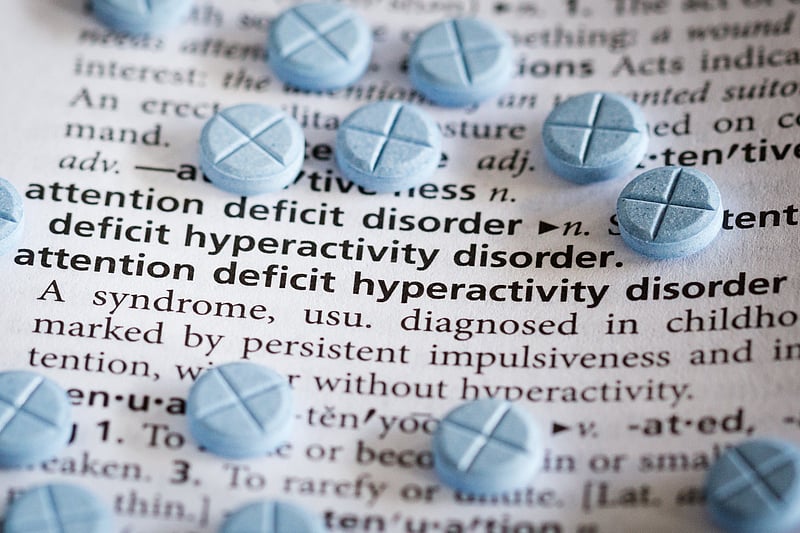(330) 876-1228
8507 Main StreetKinsman, OH 44428
(330) 876-1229

Stimulant medications like Ritalin are commonly prescribed to help treat the symptoms of attention deficit hyperactivity disorder, but there have been concerns the drugs may lay the groundwork for later substance abuse.
New research may now set those worries at ease.
Children who take prescription stimulants for ADHD do not have more substance use disorders as teens or young adults than children who didn't take stimulants, according to researchers.
"The concern was whether or not that would, for multiple reasons, train the brains, train the behaviors of the children to use substances to deal with their problems,"said Brooke Molina, a professor of psychiatry, psychology and pediatrics at the University of Pittsburgh School of Medicine. "That's why we launched into this, to see if, in fact, there was a connection."
About 10% of U.S. children ages 3 to 17 get a diagnosis of ADHD at some point, according to the U.S. Centers for Disease Control and Prevention.
Children with ADHD have problems with inattention, hyperactivity and/or impulsivity. These behaviors can affect how they function socially, academically and at home, in childhood and adulthood.
Stimulant drugs -- paired with counseling to help build skills and parent training -- are a first-line treatment, but they're also classified as schedule 2 controlled substances by the U.S. Drug Enforcement Administration. The drugs include methylphenidate (Ritalin and Concerta) and amphetamine/dextroamphetamine (Adderall).
The treatments are evidence-based and have few side effects, Molina said. Stimulants "have a very strong effect on ADHD symptoms,"Molina said.
They're also easy to prescribe and obtain, although recent drug shortages have made that more challenging.
Non-stimulant medications are an important alternative but less effective, Molina said.
While a number of studies have looked into stimulant use for ADHD and substance use, the approach was different this time, she said.
"What was helpful about this particular study, which was a multi-site study conducted over 16 years, is that we followed those children from their initial enrollment in the study, which was on average age 8, for 16 years, up to a mean age of 25,"Molina said.
Researchers interviewed the patients and parents multiple times and collected data from schools.
"It allowed us to consider a wide range of variables that might cause us to accidentally conclude that stimulant medication is correlated with substance use, when, in fact, there are other variables that are accounting for that correlation,"Molina said.
Researchers found that stimulant use was "neutral,"neither creating greater likelihood that a child prescribed the medication would go on to have substance use issues or a substance use disorder, but also not protective against future disorders.
"We do know that children with ADHD have increased risk for substance use disorder, but treating them with stimulant medication in and of itself, there's no evidence that that's going to cause increased risk,"Molina said.
Both environmental and genetic factors are involved in those increased risks.
Some study participants self-reported an increase over time in heavy drinking, marijuana use, daily cigarette smoking and using other substances, but researchers found an association with age for stimulant treatment. Older participants were less likely to continue taking medication. Looked at together with their statistical analysis, the study did not find evidence that prolonged stimulant use was associated with increased risk.
The study included 547 children at six U.S. sites and one in Canada. They were divided into four groups: medication management alone; behavior therapy alone; combination treatment; and referral to usual community care.
Carey Heller, a Maryland psychologist who works with children who have ADHD, said families often ask about future drug use in connection with stimulant medication.
Though Heller can't prescribe medications because that's the job of medical doctors, including pediatricians and psychiatrists, his patients do take them.
"Probably at least half to two-thirds of people I work with take medication,"said Heller, who was not part of the study. "In terms of treating ADHD, the medication can help a lot with focus and impulsivity and hyperactivity to some degree, but it doesn't really give you the underlying executive function or self-regulation skills. And so that's where behavioral therapy really comes into play."
He suggests looking at the available treatment options and weighing the pros and cons of each and getting a doctor's perspective to make an informed decision.
"Concerns around future substance use should not be a reason, at least from my perspective, that parents don't explore the possibility of stimulant medication, if that makes sense for their child,"Heller said. The study illustrates that point, he said.
Decisions about whether to prescribe stimulants may vary for individuals, and it would be important for a parent to ask the prescriber to address any concerns around family history of substance abuse, for example, Heller said.
The findings were published July 5 in JAMA Psychiatry. The research was supported by the U.S. National Institute on Drug Abuse.
More information
The U.S. Centers for Disease Control and Prevention has more on ADHD.
SOURCES: Brooke Molina, PhD, professor, psychiatry, psychology and pediatrics, University of Pittsburgh School of Medicine; Carey Heller, PsyD, psychologist, Heller Psychology Group LLC, Bethesda, Md.; JAMA Psychiatry, July 5, 2023
